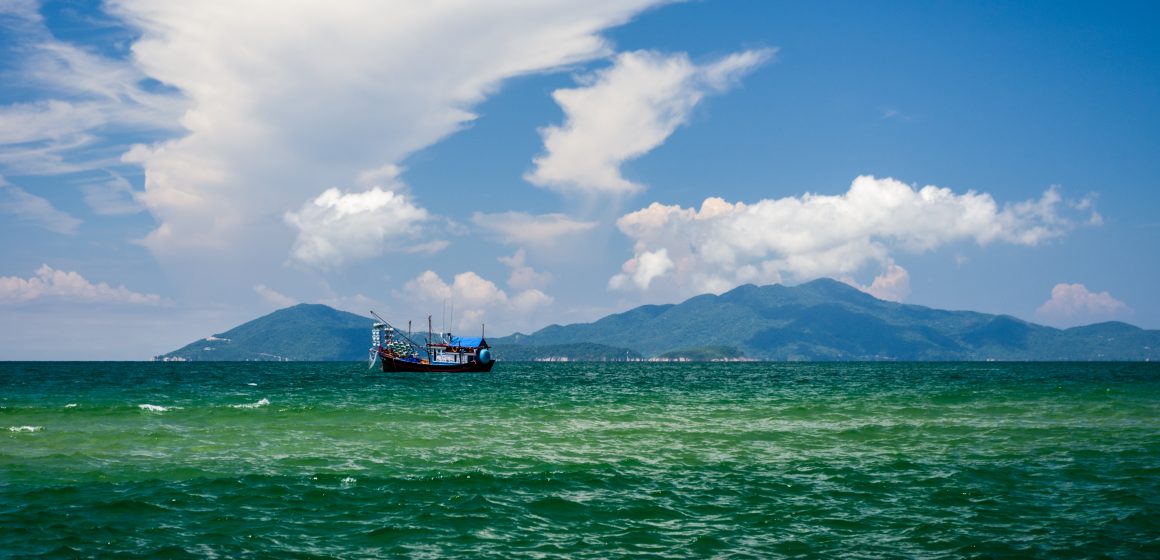Some analysts are predicting that Vietnam will soon file a complaint against China under the U.N. Law of the Sea Convention (UNCLOS) dispute settlement mechanism regarding China’s actions in the South China Sea. For Lawfare, Peter Dutton wrote that because “Vietnam knows it cannot prevail in a standoff with China, international litigation may be an increasingly attractive option to alter trends that are not currently working in Vietnam’s favor.” What would Vietnam gain from bringing suit? Dutton’s answer is “clarity over its legal rights to resources in the region,” leverage to prevent China from interfering with its exploration in Vietnam’s claimed Exclusive Economic Zone (EEZ) and increased “costs to Beijing of its intransigence.” These are reasonable expectations. But the legal obstacles and political blowback could be significant. In addition to potential benefits, Vietnam should also consider what it can lose and ask: is it worth the risk?
Despite Vietnam’s righteous indignation, the legal aspects of this case are more complicated than it might first seem. Vietnam sees a clear-cut violation by China of its rights to the resources in its EEZ and on its continental shelf. But the success of Hanoi’s potential litigation depends in part on how Vietnam frames the complaint. If the complaint can be confined to China’s claims and actions near Vanguard Bank—where Chinese government vessels harassed hydrocarbon exploration and exploitation efforts by Vietnam’s contractors—international law would indeed favor Vietnam. In 2016, an arbitration tribunal ruled that China’s historic “nine dash line” maritime claim is not compatible with UNCLOS. It also ruled that all of the high tide features in the Spratly Islands are “legally rocks” and thus “do not generate entitlements to an exclusive economic zone or continental shelf.”
But if Vietnam files a complaint, it will be difficult to avoid raising the questions of the extent and validity of Vietnam’s EEZ and continental shelf claims—and that could present problems.
It could be argued that China has claims based on the Paracels that overlap with Vietnam’s claims. It could also be argued that, technically, the tribunal ruling on the legal status of the Spratly features applies only to the Spratlys—not the Paracels. The general applicability of this particular ruling to other claims was—and still is—very controversial. Other countries who supported the Philippines in bringing the case and now say they support the results—including the U.S., Australia, and Japan—might not agree that the ruling’s principles should be applied to their own claims. These countries have not rescinded the EEZs and continental shelves that they claim from their own features that are likely only legal rocks—including the U.S.’s Northwest Hawaiian Islands, Australia’s Heard and McDonald and Japan’s Okinotorishima. The point is that state practice does not conform to that aspect of the ruling and another arbitration panel might rule differently.
Moreover, Vietnam uses a baseline for its EEZ and continental shelf claims that does not conform to UNCLOS stipulations. This would further complicate the case by necessitating a determination of the extent of Vietnam’s legal claims.
A Chinese claim to part of Vietnam’s claimed EEZ and continental shelf, based on an EEZ and extended continental shelf from the Paracels, could complicate an arbitration panel’s acceptance of jurisdiction. According to UNCLOS Article 298, exemptions from jurisdiction include sovereignty disputes, boundary delimitation and military and law enforcement activities. China—or its theoretical representatives—might argue that this dispute does indeed involve one or more of these exemptions. The China-Philippines arbitration panel made a rather narrow interpretation of these requirements for jurisdiction. But another panel in another context might also decide this matter differently.
China might also argue that until a ruling or a boundary is forthcoming, a portion of Vietnam’s claimed EEZ and continental shelf is disputed and that according to the Guyana-Suriname precedent neither country should unilaterally proceed with exploitation until a boundary is established.
Another legal obstacle that Vietnam has to overcome before proceeding to arbitration is “admissibility.” China and Vietnam have a bilateral agreement that stipulates “for sea-related disputes between Vietnam and China, the two sides shall settle them through friendly negotiations and consultations.” Whether this would apply and prevent the panel from proceeding depends on the status of this “agreement.” If it is considered formal and binding, it will carry more weight with the panel than the Declaration on Conduct of the Parties in the South China Sea—which the panel in the Philippines-China case dismissed as only a “political statement” that did not prevent “admissibility”.
It is not a slam dunk that an arbitration panel will accept jurisdiction and admissibility.
But even if Vietnam’s complaint passes the procedural hurdles, after several years and considerable expense it could well be legally victorious—which may not be worth much in the face of raw power politics.
China will likely not participate in the proceedings nor recognize or abide by any unfavorable decision. Instead it will accept the cost of its “intransigence” and probably respond with a combination of sticks and carrots until it obtains a favorable practical outcome. International politics can get ugly and there are many actions that China could take to retaliate against such a move by Vietnam in the maritime sphere—not to mention outside it—to which Hanoi could do little in response. For instance, it could step up its enforcement of its fisheries laws around the Paracels. It could increase its military presence near Vietnam’s occupied features and hinder their resupply. It could step up its petroleum exploration in the portion of the disputed area it claims and thus discourage exploration by Vietnam’s contractors. Already some foreign oil companies have returned three exploration blocks in the area to Vietnam’s state oil company because of the uncertainties posed by China’s opposition to their activities. The recent sail through the area by a Chinese survey vessel may have been a warning for Vietnam not to allow its contractors to proceed with exploration there. These are all escalatory actions, and hopefully China would not implement them. But Vietnam should take into consideration the possibility—some would say the probability—that Beijing will do so.
Some analysts claim that if Vietnam proceeds with arbitration, it would provide “grounds for resisting Chinese actions, providing a basis for the international community to support Vietnam.” But the U.S. and some of its allies already constantly bash China regarding its behavior in the South China Sea to no avail. If Vietnam is counting on international support to deter or change China’s behavior, it could well be sadly mistaken. The U.S. will likely support and use Vietnam’s action to stoke its narrative of the China threat, and China will perceive that Vietnam has sided with the U.S. in their great power contest. Of all countries, Vietnam should know that if the going gets tough, the U.S. will likely cut its losses and abandon it—principles notwithstanding.
In sum, if Vietnam takes China to arbitration on this issue, it faces major legal and political obstacles. Worse, it may not achieve the “clarity” and “leverage” it sought. Even if it is legally victorious, Vietnam’s relations with its giant and ever more powerful neighbor may well deteriorate. Despite urgings from zealous nationalists and advisors, Vietnam should carefully consider the downsides of venturing into what could easily be a no-win situation.
Photo: A Vietnamese fishing boat in the South China Sea near the shore of Hoi An. (Jean-Pierre Bluteau, https://flic.kr/p/NmUrEr; CC BY-NC 2.0, https://creativecommons.org/licenses/by-nc/2.0/)


Leave a Reply